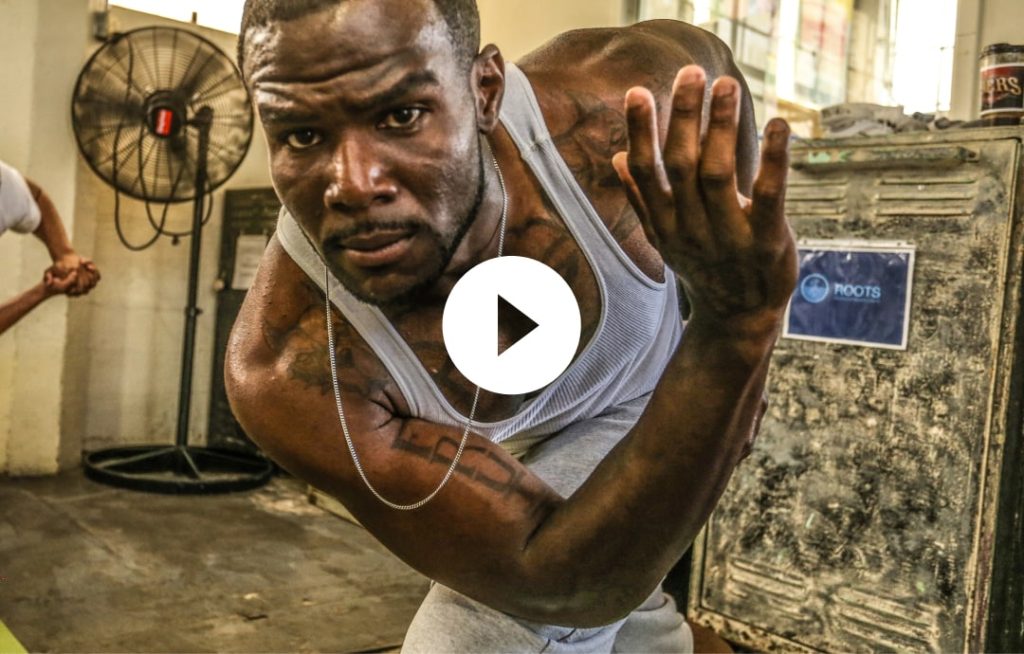Our programsTrauma-Informed Training
Prison Yoga Project’s trauma-informed training is created by subject matter experts with comprehensive knowledge of trauma therapies and a combined 45 years of lived experience providing evidence-based, trauma-informed yoga and embodied mindfulness practices for incarcerated people.
Participants gain deep insight into the effects of trauma and learn how to apply yoga as a powerful tool for healing and empowerment within the criminal justice system.
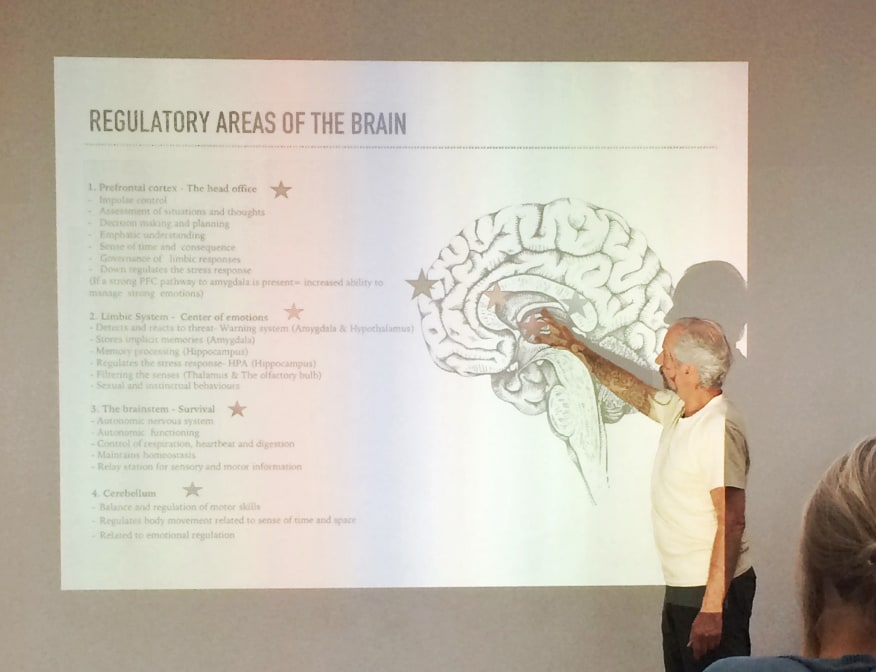
Our comprehensive trauma-informed yoga training also includes a focus on empathy, compassion, and personal accountability for justice-impacted individuals.
Training participants gain an understanding of social justice issues influencing criminality, the unique cultural environment of incarceration, and the impact trauma has on the lives of incarcerated people and people working in the system.
The foundations of trauma-informed training with PYP
Trauma Awareness
Our trauma-informed training emphasizes cultivating deep awareness, supporting participants in recognizing the impact of trauma on their lives. Through guided reflection, educational workshops, and experiential exercises, we encourage individuals to understand their experiences and behavior, fostering a greater sense of self-awareness. This foundation enables participants to identify triggers and patterns, empowering them to navigate their healing journeys with insight and clarity. By promoting a culture of curiosity and self-inquiry, we support participants in uncovering the underlying causes of their trauma, facilitating a more profound and lasting healing process
Safety & Inclusivity
Our facilitators are dedicated to creating an environment where participants can feel physically and emotionally secure. We establish clear boundaries, implement trauma-sensitive practices, and ensure confidentiality to reduce anxiety and foster a sense of security. By focusing on creating internal safety within the body through grounding techniques and mindfulness practices, we enable individuals to engage fully in their healing process. We emphasize consent and choice, empowering participants to take control of their healing journey. Prioritizing trust and openness, we lay the groundwork for effective trauma work, even in challenging environments.
Mindfulness
Mindfulness practices are integral to our training, encouraging participants to stay present and attuned to their thoughts and feelings. Through techniques such as meditation, deep breathing, and mindful movement, we help individuals develop greater emotional regulation and resilience. This mindful awareness supports the healing process by fostering a calm and centered state of being. We offer a variety of mindfulness exercises tailored to different needs and preferences, ensuring that participants can find practices that resonate with them. Additionally, we incorporate mindfulness into daily routines, helping individuals build a consistent practice that supports long-term well-being. By cultivating mindfulness, we enable participants to develop a greater sense of inner peace and stability.
Embodiment Practices
Our trauma-informed training emphasizes the importance of embodiment, helping participants reconnect with their bodies and physical sensations. Through yoga and mindfulness practices, individuals learn to listen to their bodies’ signals and release stored trauma. These practices integrate the mind and body, promoting comprehensive healing and well-being. By fostering a deeper connection to the body, we support individuals in reclaiming a sense of agency and empowerment over their physical and emotional experiences. This embodied approach not only facilitates trauma release but also enhances overall vitality and resilience, enabling participants to move through life with greater ease and confidence.
Accessibility
We are committed to making our programs accessible to all individuals, regardless of their background or abilities. Our training is designed to be inclusive and adaptable, ensuring that everyone can participate fully. By removing barriers and providing necessary support, we strive to create an environment where all participants feel valued while offering choice and agency. We actively seek feedback from participants to continuously improve our accessibility practices. By prioritizing accessibility, we aim to create a diverse and inclusive community where everyone has the opportunity to heal and grow.
Empowerment & Agency
Empowerment is at the heart of our trauma-informed training. We aim to equip participants with the knowledge, skills, and confidence to take control of their healing journeys. Through education, self-exploration, and supportive practices, we encourage individuals to reclaim their power and make informed decisions about their well-being. By fostering a supportive environment where individuals can share their experiences and learn from one another, we help them build the confidence to advocate for themselves and pursue their goals.
Community Building
Building a supportive community, or sangha, is integral to our healing approach. While this is implicitly woven into our yoga practices, it extends beyond the mat. Our programs naturally foster a sense of belonging and connection among participants, creating an network of mutual support. Through shared experiences in yoga sessions and mindfulness practices, individuals can connect and support each other, fostering a sense of community that values each person’s journey. This sangha helps individuals feel less isolated and more supported in their healing process, emphasizing the importance of community as a cornerstone of personal growth and well-being.
Transformative
Our trauma-informed training emphasizes yoga and mindfulness as core practices for transformation. These practices are designed to remove personal blockages, enabling individuals to see and embrace their whole selves. By addressing the root causes of trauma through these methods, participants can achieve lasting change. We focus on fostering personal growth and resilience, encouraging individuals to explore their strengths and discover new ways of being. Importantly, we do not seek to ‘fix’ individuals, but rather support them in realizing their fullest potential. This approach helps participants develop a greater sense of purpose and direction, guiding them towards a more fulfilling and meaningful life. Through consistent yoga and mindfulness practices, individuals can create a new narrative for their lives, grounded in empowerment.
It’s given me knowledge and understanding to deliver trauma informed yoga to a variety of people in a variety of settings. Not only that, I feel the trauma informed approach will naturally transfer into other areas of my working and personal life.
PYP Trainee
Our Trauma-Informed Training Programs
Our trainings at Prison Yoga Project are characterized by a deep commitment to trauma-informed practices, social justice, and personal transformation. Designed to be accessible and inclusive, they cater to a diverse audience, from yoga professionals to individuals working within the criminal justice system.
Through a blend of theoretical knowledge and practical application, participants gain the skills to create empowering spaces, adapt practices for diverse needs, and use yoga as a tool for healing and change. Our trainings are grounded in compassion, aiming to inspire both personal growth and collective progress. All of our trainings are offered virtually.
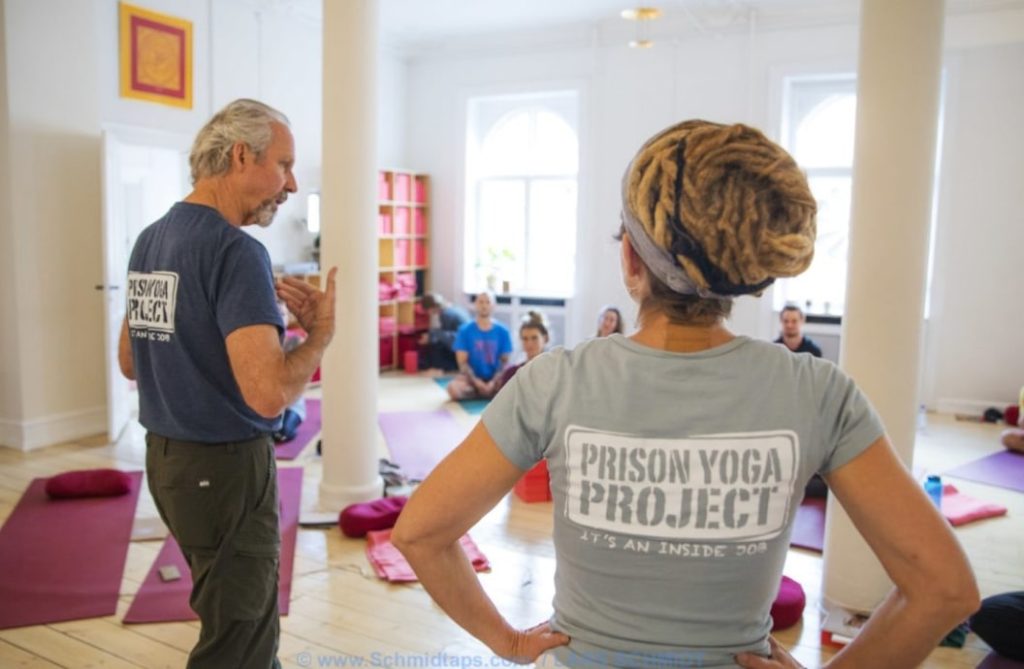
Our Training Programs:
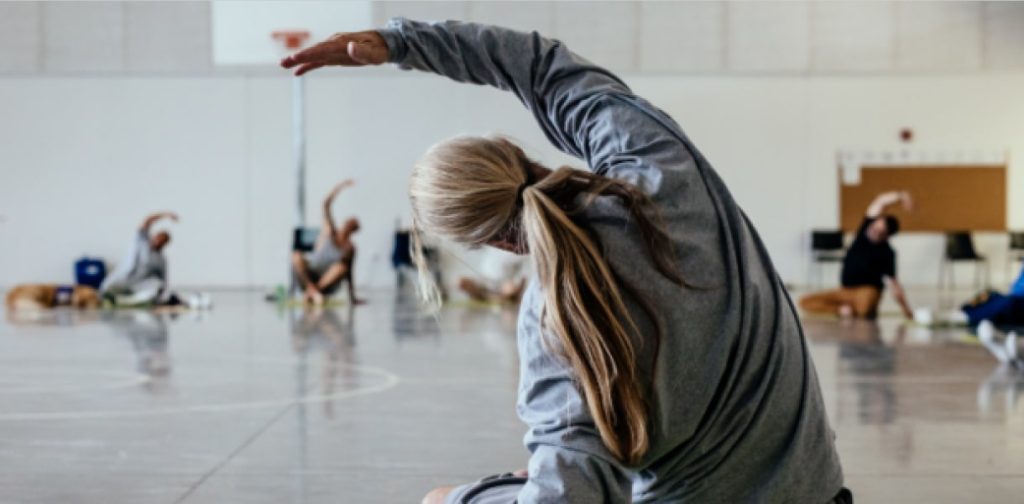
Our Foundational Training program, designed for individuals engaged with the criminal justice system, including yoga professionals, therapists, and law enforcement officers, has welcomed over 3,000 participants since its inception in 2010. This 34-hour course combines self-paced online learning and interactive workshops, focusing on trauma, mental health, and the rehabilitative power of yoga and mindfulness.
“I thought the breadth of material covered was exceptional. I learned so much, while at the same time each lesson was manageable and not overwhelming. The way the content was broken down and presented helped me to feel like I was learning in a way that it’ll stick and integrate. I appreciated the wide range of factors that were addressed, rather than just a focus on yoga teaching. It was really valuable for me in ways that extend far beyond wanting to be a yoga teacher in a correctional facility.” – C.F.
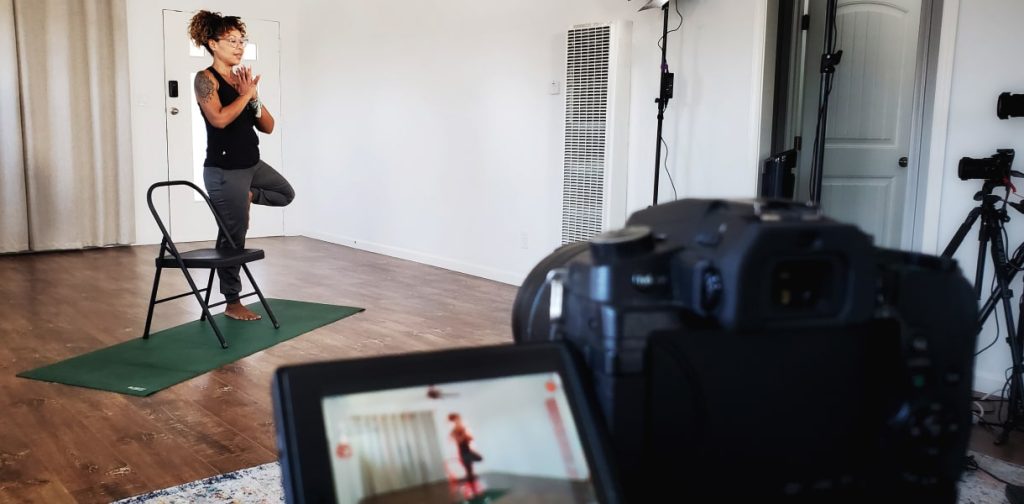
Our 200-hour Yoga Teacher Training merges the practices of yoga with principles of social justice and leadership. Open to individuals from various backgrounds, including those involved in the criminal justice system, this program spans 19 weeks. Participants will engage with trauma-informed yoga practices, delve into yoga’s foundational elements, and discuss ethical considerations in teaching. The curriculum emphasizes using yoga as a tool for both personal healing and broader societal change, fostering the creation of safe and inclusive environments.
“If you want to truly learn and know yourself while healing from trauma, as well as help others find their way to self knowledge while redefining what a typical yoga practice looks like, this is the way to go.” – A.T. YTT Participant
Our Commitment to Transformation
At Prison Yoga Project, our work extends far beyond individual sessions. We’re dedicated to expanding the reach of trauma-informed yoga because we believe in its ability to drive meaningful change. This isn’t just about personal growth; it’s about impacting the broader systems we all navigate.
Become part of this movement with us. Together, we can explore how trauma-informed yoga can open doors to healing and personal empowerment.
Find Training
If you are interested in becoming a PYP facilitator, please check out Becoming a Facilitator. We offer a tiered-pricing model with Community, Supporter, and Benefactor levels. For people who can afford to pay a little more, the extra you give covers a part of the cost for those who cannot.
Scholarships & Support
For those with constrained finances, we also offer scholarships. Scholarship applications are evaluated based on economic need, identification with a disproportionately impacted group by trauma and incarceration, and the likelihood of applying the knowledge and skills learned in service to the community.
Become a Facilitator
Bringing yoga and embodied mindfulness practices to incarcerated people can be one of the most rewarding endeavors a person can undertake. It takes commitment, skill, and deep personal practice. Anyone who has completed a yoga teacher training program may apply.

